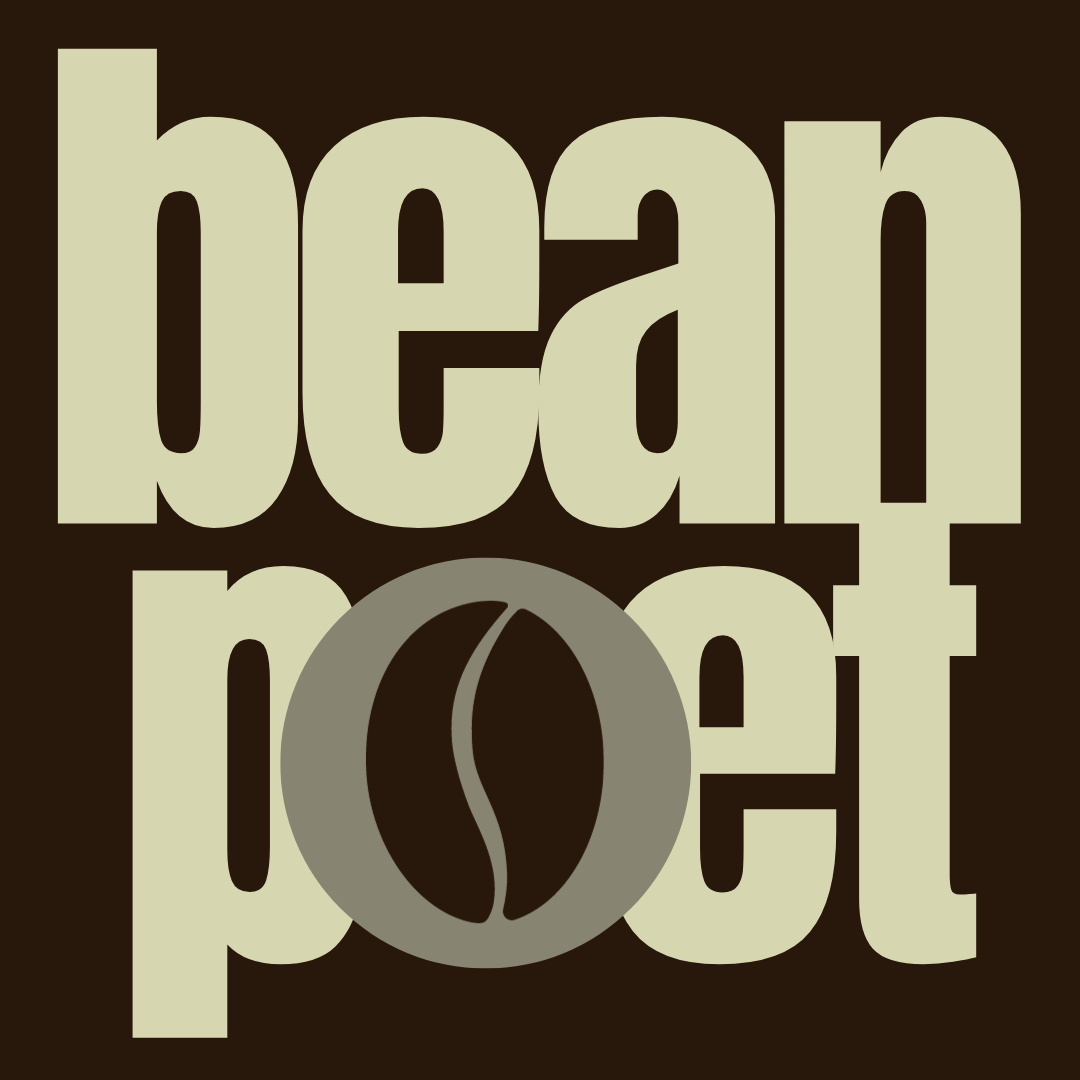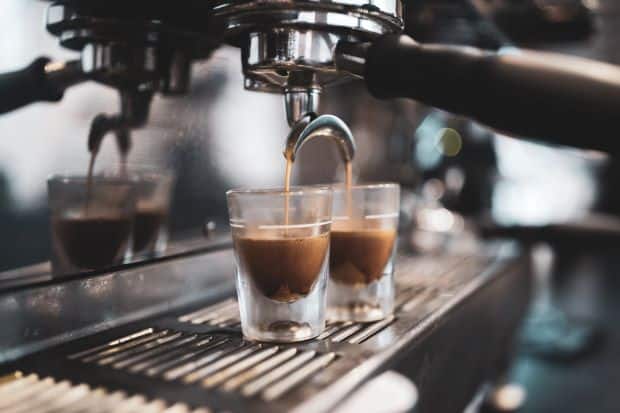Last Updated on December 4, 2023
You’re in the mood for espresso, but all you have is some regular pre-ground coffee in the pantry. Is it okay to use that regular ground coffee in your espresso machine? Or should you hold off and go buy special espresso beans?
Before you make that cup of coffee, you should know a few things about your espresso machine.
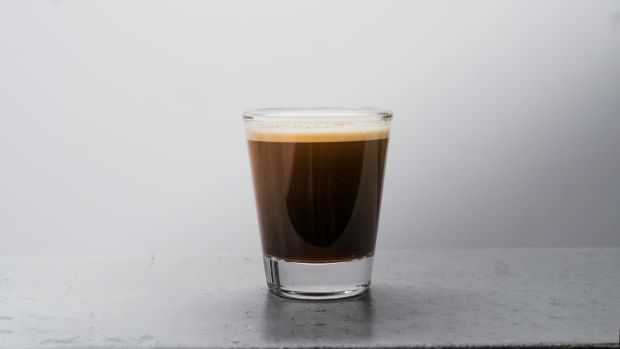
How a Shot of Espresso Is Made
When it comes to espresso, it’s less about a specific grind or type of coffee bean, and more about how the coffee is made.
Your espresso machine forces hot water through the ground coffee, which is typically a finer grind than what you’d use for filter coffee. While any kind of bean can be ground and used in an espresso machine, the type of bean you use can develop a bitter taste during the espresso process if the coffee is not specifically made for espresso.
Likewise, using ground espresso coffee in a conventional drip coffee maker might save you time, but it will taste nothing like a true cup of espresso. The resulting cup of coffee might taste watery and bitter.
Here are some other important things you should know about espresso:
- Espresso requires much less water than regular ground or filtered coffee.
- Your espresso machine makes coffee much faster than a drip-style coffee maker or even a French press.
- To get the delicious crema that forms at the surface of your coffee, you need high pressure and very hot water.
- You can drink your espresso right away or use it as the foundation for popular concoctions such as lattes and cappuccinos. These specialty drinks require you to froth milk to add to the espresso. Most commercial espresso machines come equipped with a milk frother.
In short, the main differences between espresso and filter coffee are their brewing times and how fine the ground coffee needs to be. More on that later!
The Truth About Using Regular Coffee in an Espresso Machine
You can use regular coffee in an espresso machine, but the result will be less than satisfying. If you put the wrong kind of grind in your machine, don’t expect your coffee to taste like a high-pressure shot of espresso. The ground coffee used in a drip coffee maker or French press is too coarse to work properly with an espresso machine.
Conversely, if you use a fine, powdery grind of espresso coffee in your traditional drip coffee machine, you’ll end up with a bitter, burnt-tasting cup of coffee. The grinds might also clog the filter, causing a mess and leaving coffee grinds in your brew. Your cup of drip coffee will taste sour, and you don’t want that.
The solution is to use a dedicated grind for your drip machine, and a different grind for your espresso machine. It’s that simple!
Types of Beans
Coffee beans are a slightly different story. As long as you grind the beans to work with the machine that you’re using, the resulting coffee should be good. But you should know a few things about the difference between espresso beans and coffee beans:
Espresso Beans
- Espresso beans are specifically designed to hold up and have peak flavor when subjected to the high pressure and hotter water of an espresso machine. This is what sets espresso beans apart and distinguishes them from ordinary coffee beans.
- Espresso coffee beans are tried and tested to taste better when put through the espresso-making process.
- Beans for espresso can be priced a bit higher than regular coffee beans. This is because espresso beans are of a higher quality, so that they won’t crumble or deteriorate under intense pressure and heat.
- Espresso beans are typically darker roast beans, which have a fuller body, robust flavor, and the right amount of acidity to prevent the strong espresso from tasting bitter.
- Espresso beans are usually oily—much oilier than regular coffee beans. In fact, you should be able to see a shine on your espresso beans before you grind them. Be sure to give your grinder a thorough cleaning, so the oils don’t clog it and make a mess.
Coffee Beans
- Coffee beans include any bean that is ready to be ground and brewed for coffee. This ranges from light roasts or blonde roasts to dark espresso roasts.
- The lighter the coffee beans, the less of an oily shine they’ll have. Darker roast beans have a more distinct and glossy sheen.
- Coffee beans are typically less expensive than espresso beans, since they don’t have to hold up to the rigorous espresso-making process.
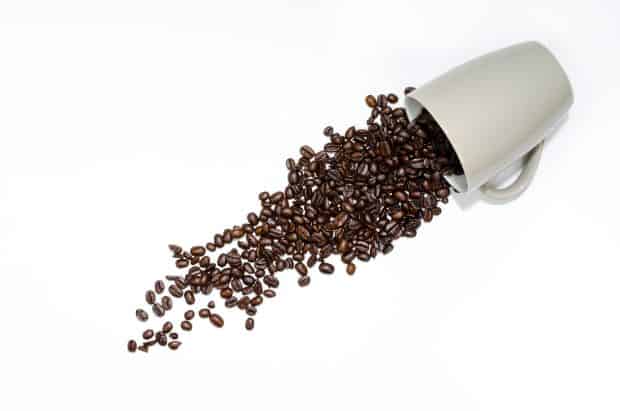
Best Type of Coffee Roast
What roast makes for the best cup of coffee or espresso shot?
Most coffee enthusiasts will recommend that you use a dark roast.
Dark roast beans are lauded for making the best espresso. Moreover, dark roast beans tend to strike a harmonious balance of acidity and sweetness in the cup.
Truth be told, the best move is to go with your personal preference. Stick with what you love.
Regrinding and Grind Size
Regrinding ground coffee to make it more suitable for espresso is never a good idea.
You should grind beans for a shot of espresso within a minute of brewing. This ensures optimal flavor and aroma, and you’ll get the best results in your cup. You’ll lose freshness and flavor with each minute that the ground coffee sits, and lose much more if you go ahead and regrind it.
Another reason why you should never regrind ground coffee: you risk clogging your coffee grinder. This can make a major mess. Give yourself—and your coffee grinder—a break. Only grind once, and start with fresh beans for your shot of espresso.
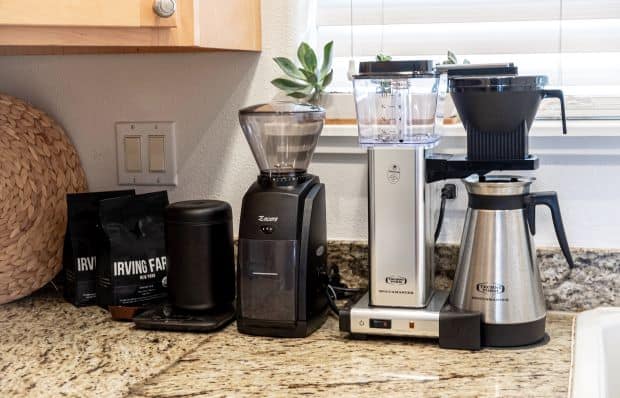
Now you know why it’s best to use espresso beans for your espresso machine instead of using the regular pre-ground coffee (or even the regular coffee beans) you have in your kitchen cabinet. Of course, it’s not a crime to use regular coffee grounds for that much needed shot of espresso—but you shouldn’t make it a habit. Your machine is designed to work with the precise grind of espresso to give your coffee the best possible taste.
